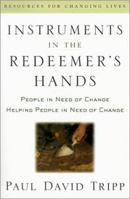eBay Listings That Sell For Dummies (For Dummies (Computer/Tech))
Select Format
Select Condition 
Book Overview
No matter what you want to sell on eBay--auto parts or designer apparel...weird, unique wares or pricey antiques--the principles and basic rules for successful listings are the same. eBay Listings That Sell For Dummies follows the advice it gives you for your ads--it tells you what you need to know without bogging you down with lots of fluff and peripheral stuff. From the mechanics to descriptive ad copy to photography to getting it on eBay, this guide covers: eBay options that can boost the appeal of your listings, including Buy It Now (BIN), Subtitle, Bold Title, Highlight, Box border, Home Page Featured, Featured Plus , and Gallery Picture (a must) Constructing catchy listings with a title that sells and keywords that pay off eBay Acronyms you'll need to know Tackling and completing eBay's Sell Your Item form HTML formatting basics plus some free JavaScript scripts you can use to dress up your listing Embedding images, creating thumbnails, and adding bells and whistles (or not) Buying a digital camera for taking eBay photos and equipping your "studio" Lighting correctly, and using the Cloud Dome, light cubes, panels, and umbrellas Retrieving your images and uploading them to a server (your free ISP space, AOL, eBay, eBay's Picture Manager, or others) Editing your photos, including cropping, enhancing, resizing, sharpening, and more A checklist of techniques for preparing elegant, fast-loading images for your ads Sprucing up your eBay store Posting your listing to other sites such as half.com, amazon.com, and overstock.com Automating with HTML Generators, including eBay's Turbo Lister, or Third-Party HTML generators such as Mpire.com Launcher or the authors' free tool from www.coolebaytools.com Written by eBay pros Marsha Collier, a successful PowerSeller, and Patti Louise Ruby, a trainer at eBay University events and eBay Live, eBay Listings That Sell For Dummies is loaded with tricks of the trade. It's complete with step-by-step instructions for many tasks, tables and checklists, lots of screen shots, and examples of good and bad ads. With this friendly guide, your merchandise will quickly be going...going...gone on eBay.
Format:Hardcover
Language:English
ISBN:0761535357
ISBN13:9780761535355
Release Date:September 2001
Publisher:Three Rivers Press (CA)
Length:269 Pages
Weight:1.00 lbs.
Dimensions:1.1" x 5.9" x 8.8"
You Might Also Enjoy
Customer Reviews
9 customer ratings | 5 reviews
Rated 5 starsVery Helpful
By Thriftbooks.com User,
This was a very helpful book, and made me think about the details when creating my listing and taking my pictures. It explains how to take clearer pictures and the important information to put in your listing. Most importantly, it tells you what things you should not do.
1Report
Rated 5 starsThis is the book eBay sellers asked for!
By Thriftbooks.com User,
I'm the editor who worked with Patti & Marsha on this book. When we attended the eBay Live convention in 2005, we had the chance to ask a lot of eBay sellers what kind of information they needed that they couldn't find. We got the same replies over and over: * They wanted info on how to take better photos for their sales, especially how to take photos of smaller items like jewelry and coins. * They wanted to know how to...
1Report









































